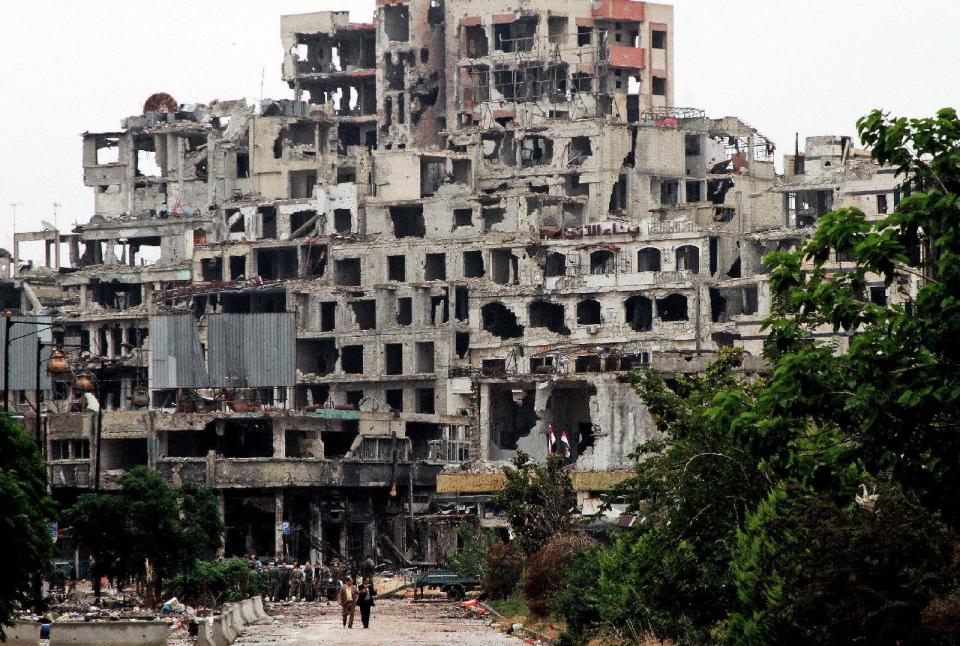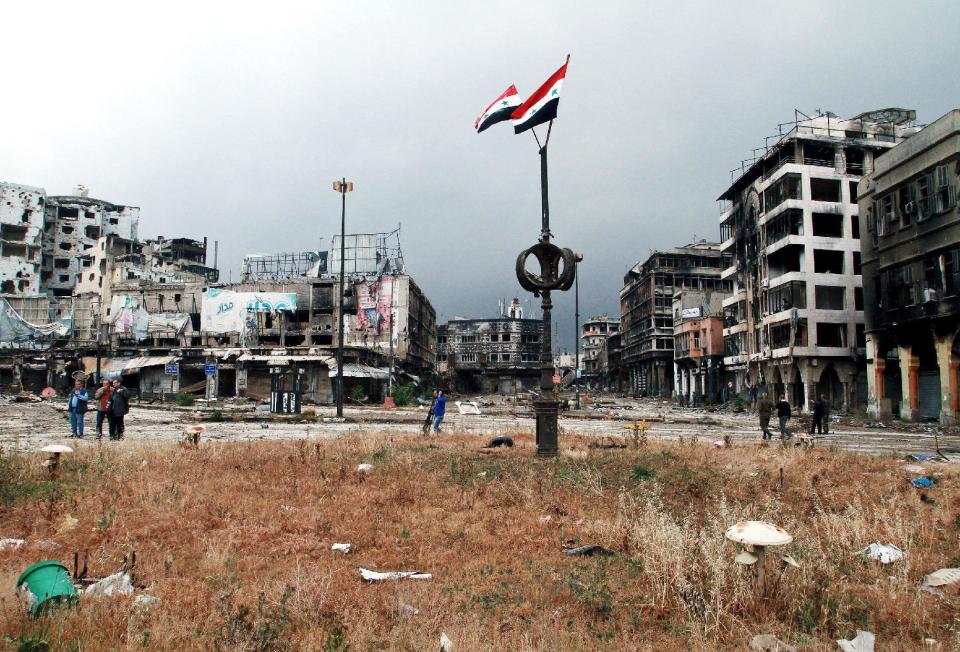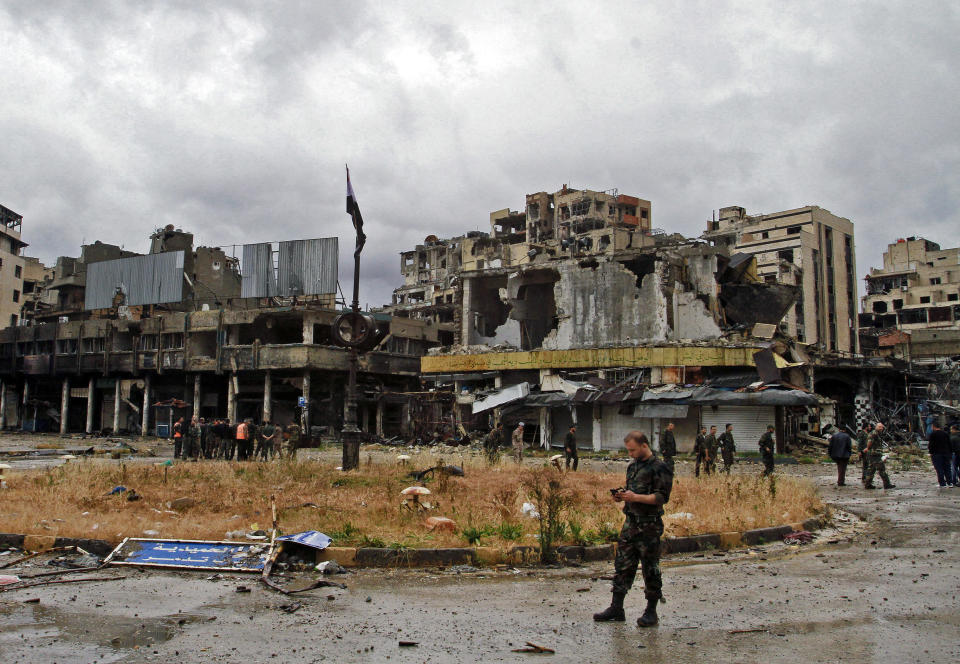Syrian troops enter old Homs as deal stalls
HOMS, Syria (AP) — Bulldozers cleared rubble Friday from the streets of battle-scarred districts in the central Syrian city of Homs after government troops entered the last rebel-held neighborhoods as part of an agreement that also granted opposition fighters safe exit from the city.
The government quickly forged ahead even as another aspect of the negotiated deal hung in the balance. The departure of a last batch of some 300 fighters waiting to leave for rebel-held areas north of Homs had been delayed after opposition fighters in northern Syrian prevented aid from reaching besieged pro-government villages.
The aid delivery to the communities of Nubul and Zahra in Aleppo province was part of the agreement allowing rebels to leave Homs.
Some 1,700 rebels have left Homs since Wednesday under the deal struck by the government and opposition. The withdrawal, which brought an end to a fierce, two-year battle for the heart of Syria's third-largest city, marked a major victory for President Bashar Assad in the civil war.
For Syria's rebels, it was a devastating blow, both symbolically and strategically. The deal handed Assad control of the city once known as "the capital of the revolution," as well as a geographic linchpin from which to launch offensives on rebel-held territory in northern Syria.
Homs governor Talal Barazi said that engineering units were combing the old neighborhoods of the city Friday, including the former opposition stronghold of Hamidiyeh, in search of mines and other explosives.
State TV said two soldiers were killed while dismantling a bomb.
An AP reporter in Homs on a military-led tour said soldiers and pro-government militiamen had fanned out across the districts to provide security. In the predominantly Christian neighborhood of Hamadiyeh, a few people trickled back in to check on properties that had long been on the other side of the front line.
Imad Nanaa, 52, returned to check on his home for the first time in almost three years. Miraculously, he found it almost intact, compared to other houses with shattered windows and crumbling walls.
Speaking nervously and hurriedly because he wanted to leave the area as quickly as possible, Nanaa said he was looking forward to return with his family as soon as the army allowed it.
"This deal has saved us from more blood and destruction," he said.
People returning had to hand over their IDs to the troops upon entering the formerly rebel-held districts. The soldiers then returned the papers as the people filed out later.
One man walked out with a guitar under his arm. A woman emerged from her home carrying a stack of photo albums.
"I have nothing left for me to remember so I brought these photos," the woman, Fadia al-Ahmar, said. "My house was destroyed."
The staggering scale of destruction in the area spoke to the ferocity of the fighting.
City blocks were pounded into an apocalyptic vista of gray, hallow facades of blown-out buildings. The charred, crumpled carcasses of cars provided an occasional figure on streets strewn with rebar and shattered concrete bricks.
In the Maljaa neighborhood, every building was damaged, even cars that were parked inside. An eight-story building was flattened into a pile of rubble. Shop fronts were pancaked. Walls of apartment blocs were blasted with holes from artillery and tank shells.
Back in Hamadiyeh, the Roman Orthodox bishop in Homs, George Abu Zakhm told The Associated Press that the situation there is "catastrophic." He said all 11 churches in Homs' old quarter have been either heavily damaged or destroyed.
He accused the rebels of lighting a fire inside the 6th century St. Elian Church, and said that icons that date back hundreds of years "are still on the walls but they were blackened."
Islamic extremists among Syria's rebels have desecrated churches elsewhere in Syria, but there was no immediate evidence to suggest that opposition fighters were responsible for the damage to Christian sites in central Homs, where every building bore the scars of fighting.
___
Lucas contributed from Beirut. Associated Press writer Bassem Mroue in Beirut contributed to this report.



